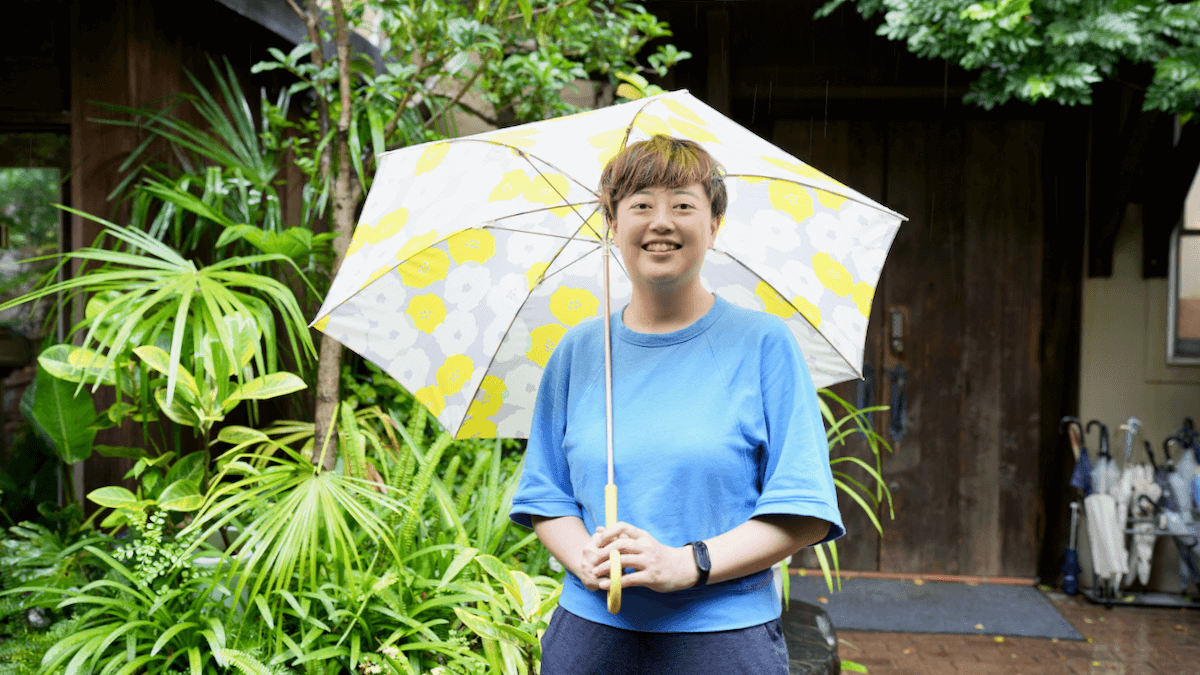実は、このものさすサイト、ただいまリニューアルの準備をしています。
毎週、その定例会議が開かれるのですが、ピシッと場を引き締めてくれるのが藤原まり絵さん。会議の進行の潔さ、要点を得た議事録のつくり方をホレボレしながら見ています。会議の前日には「アジェンダある人は書き込んでください」とアナウンスもきっちりしてくれて。いつ、誰に何を言えばものごとが滞りなく進むのかをすごくわかっている人なんだなと思っていました。
今回はそんなまり絵さんに、ディレクターという仕事についてじっくりお話を伺いました。ちなみに、インタビューの日は雨。メインビジュアルの撮影は、お気に入りの傘をさしていただきました。ビタミンカラーがよくお似合いです。
共感できる人と一緒に働きたい
杉本 前職は建築系のお仕事をされていたと伺いました。どうしてまったく違う業種のモノサスへ?
藤原 前の会社では営業企画をしていて。小さな会社だったのでいろいろやっていたんですけど、建物の内装仕様を考えてパッケージ化して、媒体を使って売り出すことも私の仕事のひとつで。これから何かを世の中に伝えるにはWebなのかなと思って、Web業界に興味をもって探していたら日本仕事百貨でモノサスの求人記事を見つけて応募しました。2015年だったと思うので、もう8、9年前ですね。
杉本 Web業界にはいろんな会社がありますが、モノサスのどういうところに惹かれたんですか。
藤原 日本仕事百貨の記事を読んで、自由度が高そうだし楽しそうにやっているなと思って(笑)。共感できる人、一緒に働きたいと思える人がいる会社で働きたいなと思いました。面接ではプロデュース部(当時)のメンバーだった眞鍋さん、山内さん、上村さんに会って、遠い存在ではなく対等に話してくれる感じがありましたね。
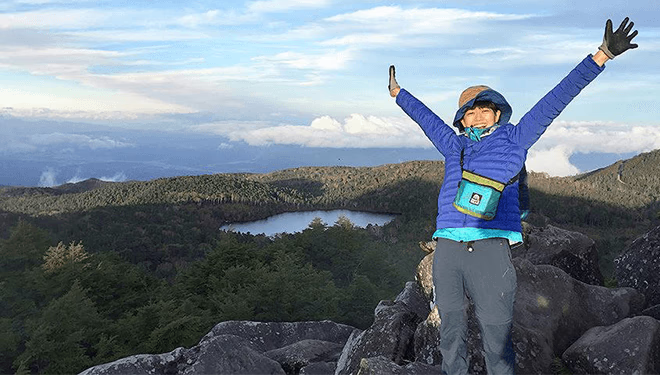
入社まもない頃、ものさす登山部で山登りをする藤原さん
杉本 入社後すぐに、クライアントの社内に常駐するチームに?
藤原 はい。もともと、メッセージやものごとを伝えたいときに、どういう方法がいいのかなと思ってWeb業界を選んだんですけど、常駐先のクライアントではイベントやSNS、紙媒体などさまざまな手法で伝える仕事をしています。
杉本 そもそも伝えることに興味があったのはどうしてですか?
藤原 美大生だったとき、すごくいい作品をつくる友だちが、それを発信する手段をもっていないのを見ていて。つくる側の人をサポートする方法として、伝えたり発信することに興味をもった感じです。
ディレクターは仕事しやすい現場をつくる仕事
杉本 2023年11月にMVPを受賞されたとき、「全方位的にていねいなコミュニケーションをとる」ことが高く評価されていました。ふだんから意識されているんですか。
藤原 あんなふうに言ってもらってはじめて「あ、そうなんだ」と自覚しました。たしかに、制作ディレクターとしては、現場の人たちが情報の迷子にならないように気をつけていたので、それが結果的に「コミュニケーションがていねいだ」と受け取られているのかなと思います。
杉本 「情報の迷子にならないように」というのは?
藤原 ちょっと例え話になるんですけど。前職では、建築現場を見に行くこともあったんですね。必ず工期を守るし、職人にも信頼されている現場監督さんは、職人さんより先に現場に入って後からくるメンバーが動きやすいようにいつも現場を整理整頓していて。きっと、こういう積み重ねが大事なんだなと思っていたんです。わりと最近、制作ディレクションも同じだなと気づいて、最初に現場を整えることを意識するようになりました。
たとえば、チームメンバーが「ここを見れば必要な情報がわかる」ドキュメントをつくること。案件の目的や背景、スケジュールなどをひとつのドキュメントにまとめておくんです。あと、メンバーごとに見せるべき情報を整理することも大切にしていて。チームメンバーごとに必要な情報だけを見せて、各自のノイズを減らすようにしています。
杉本 そんなふうに考えられるなんて、ディレクターのお仕事が向いているんですね。
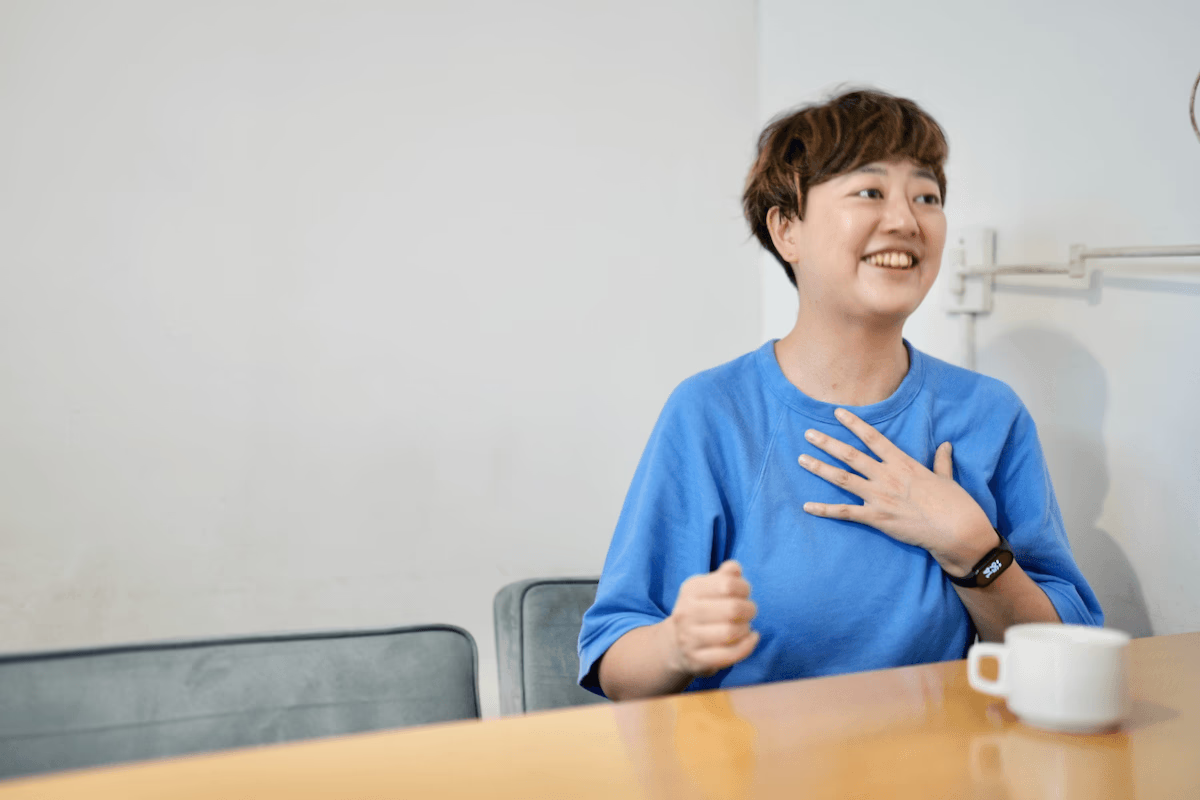
藤原 最初は「ディレクターってなんだろう、いる意味あるのかな?」って思っていたんです。クライアントとデザイナーの間に入って、伝書鳩みたいになることもよくあったし、「ディレクターに向いているのかな?」と思ったこともありました。いつからかな? 案件の背景から整理して情報を渡すと、たとえ私が完成形をうまく描けなくても、デザイナーさんは想像以上のものを返してくれる。いいものができたと思えるものに仕上がって、クライアントにも喜んでもらえるとすごくうれしくて。そういう積み重ねですかね。
私、コロナ禍がはじまった年に、何をやってもダメな時期があったんですけど。「ディレクションにおいて何が大切なのか」を改めて意識して進めるようにしたら、制作物が順調に進行するようになって、またやりがいを感じるようになりました。今は制作ディレクションがすごく楽しいし、もっと技能を上げていきたいなと思っています。
自社サイトでWeb制作ディレクションに挑戦
杉本 ものさすサイトリニューアルのプロジェクトに手を挙げたのは?
藤原 理由はいくつかあって。私、今仕事にやりやすさを感じているんですよ。経験を積んできてまだ体力もある、今この年齢のうちに仕事の幅を広げておきたいなと思っています。もうひとつは、Web制作をする会社にいるのにWebのことを知らないのが、やっぱりひっかかっていて。いきなりクライアント案件に関わるのはハードルが高いけれど、自社サイトのリニューアルはすごくいい機会じゃないかと思いました。
あともうひとつは、去年クライアントが主催する大規模カンファレンスの基調講演のスライド制作を初めて担当して、すごく学びが多かったんです。いつも一緒に働いているメンバーも、関わる仕事が変わると相手から学べることも、仕事に対する視点も変わる。想像でしかなかったその仕事特有の大変さを身をもって体感できることも大きい。新しいことをやると学べることが多くていいなと思っていたところに、タイミングよくリニューアルの話があったので参加したんです。
杉本 Webリニューアルに関わってみてどうですか。
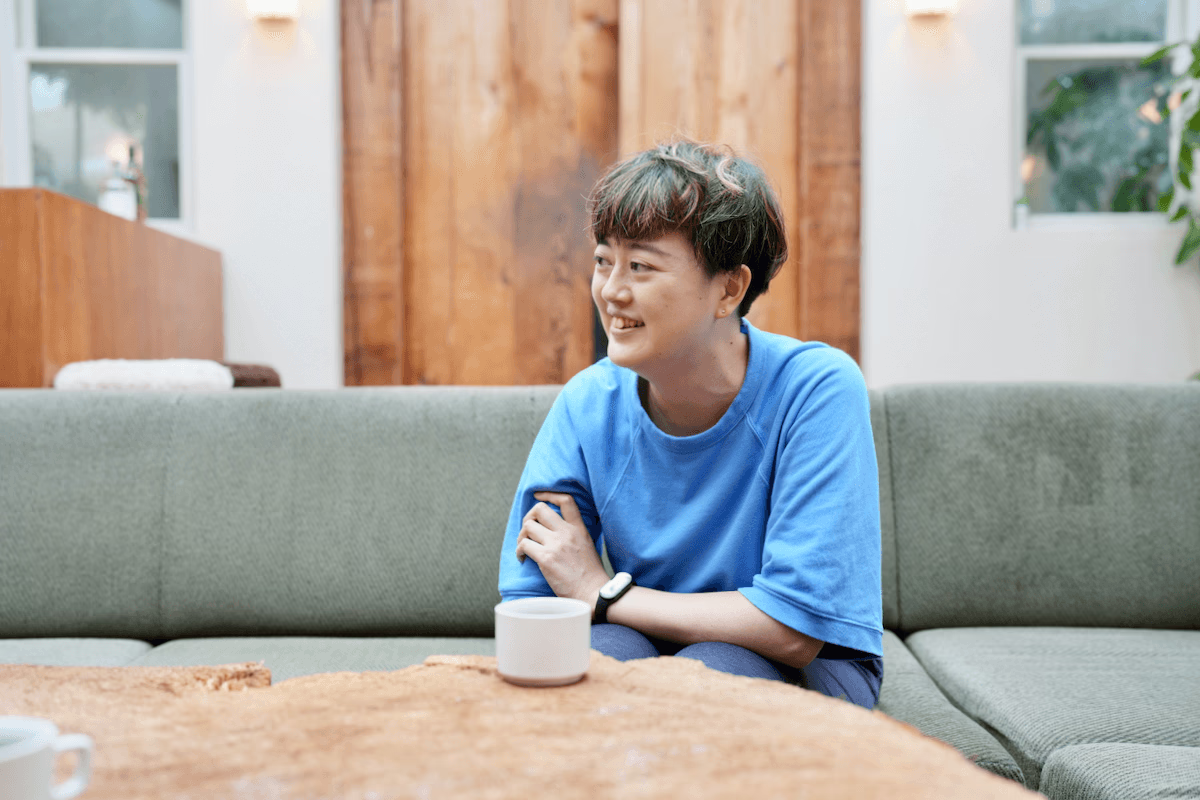
藤原 Webサイトって大変なんだなーと思いました。コンセプトづくりからWebの設計、ページ構成をどうするのか、コンテンツはどうするのかと考えることがいっぱいありますよね。セクションごとの進行をしていかないと、いくらでもスケジュールが遅れてしまいますし。いろんなスキルをもつメンバーが関わっていて、制作物の複合体みたいな感じがしています。
杉本 今までやってきたディレクションの考え方をWeb制作にも適用できそうですか?
藤原 それを試したくて関わりました。最初は、Web制作のスケジュールの立て方がわからなかったので、スケジュール管理を一緒にやってくれている山田さんにお願いして組み立ててもらい、それをベースに作ったものを実際に使用しています。
杉本 定例会議をキリッと進行してくれて、フラットにものごとを整理してくれるのでありがたいなと思っています。単なる進行管理というよりは、紐をしめてくれているような。
藤原 Webのことわからずに進行管理できるのかな?という実験みたいな気持ちもあったんですけど。定例会議を回すのもひとつ重要なことかなと思ってやっているので、そのように言っていただけて嬉しいです。
モノサスは「ずっと模索している会社」だと思う
杉本 Webリニューアルのプロジェクトは「モノサスってどんな会社なんだろう?」を考える機会にもなっているのかなと思っているのですが。
藤原 そうですね。Webリニューアルやアメリカへのスタディーツアーでは、モノサスのヒストリーをちゃんと語れる、知って愛着をもてるようになればいいねって話が出たし。自分たちが何をしているか語れるようになるとか、オープンであることとか。クライアントワークでも、もっと上流から関わりたいよねって話はユニットでもしているし。
Webリニューアルで考えること、ふだんの仕事のなかで考えていること、それからアメリカ視察を経て考えるようになったことがつながってきている感覚があります。モノサスはいい意味でずっと模索している会社だなと感じていて、いろんなところで模索し続けていることが、モノサスにとって重要なんだと思います。
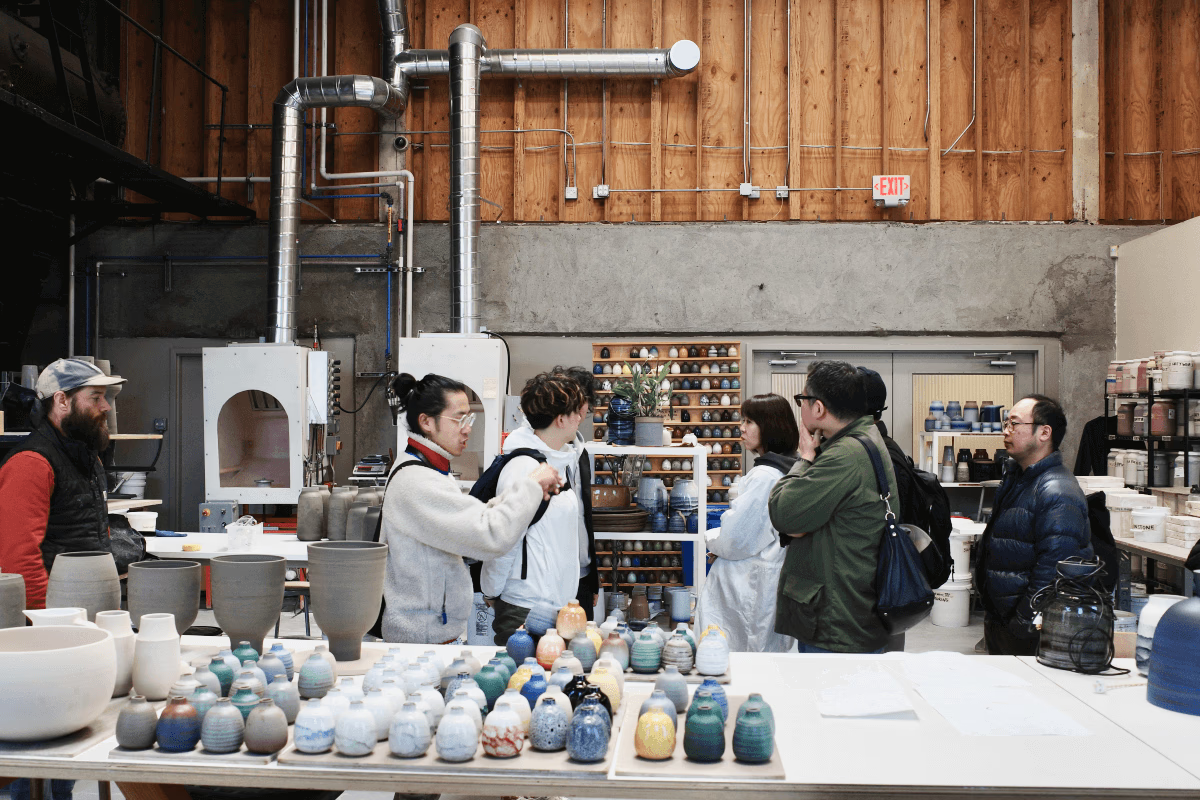
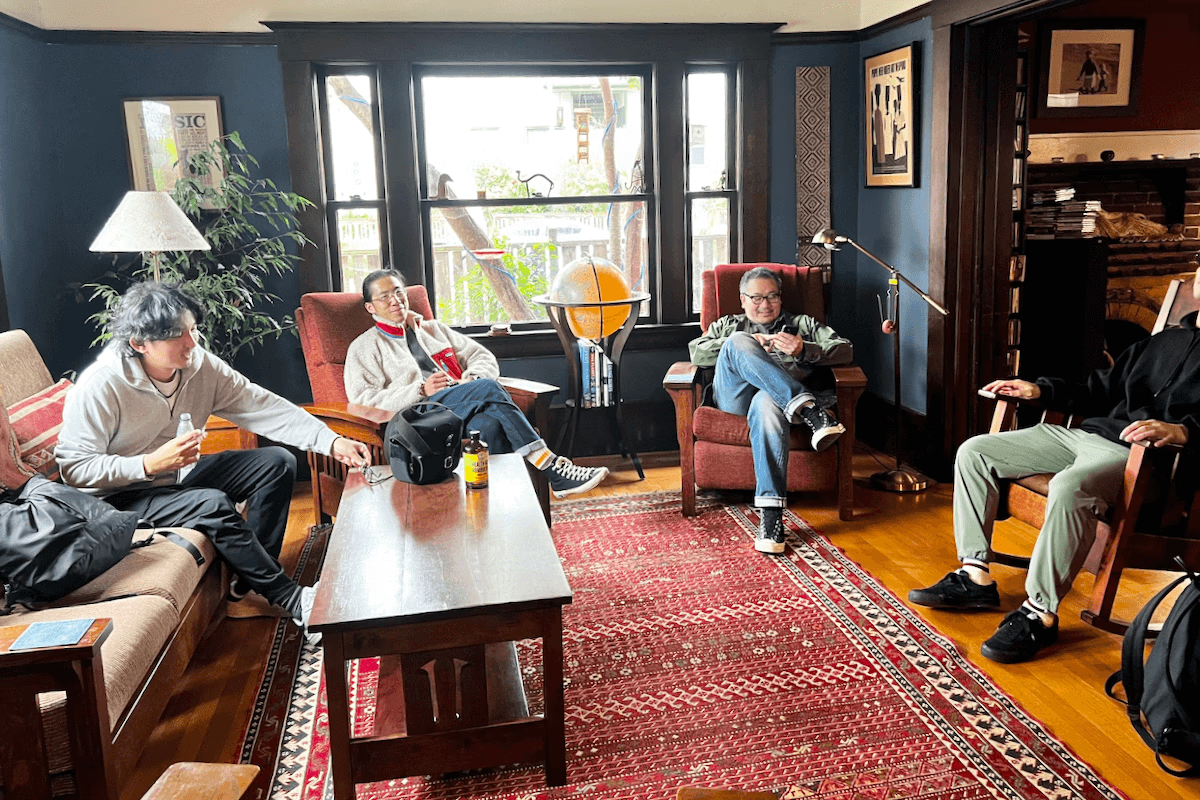
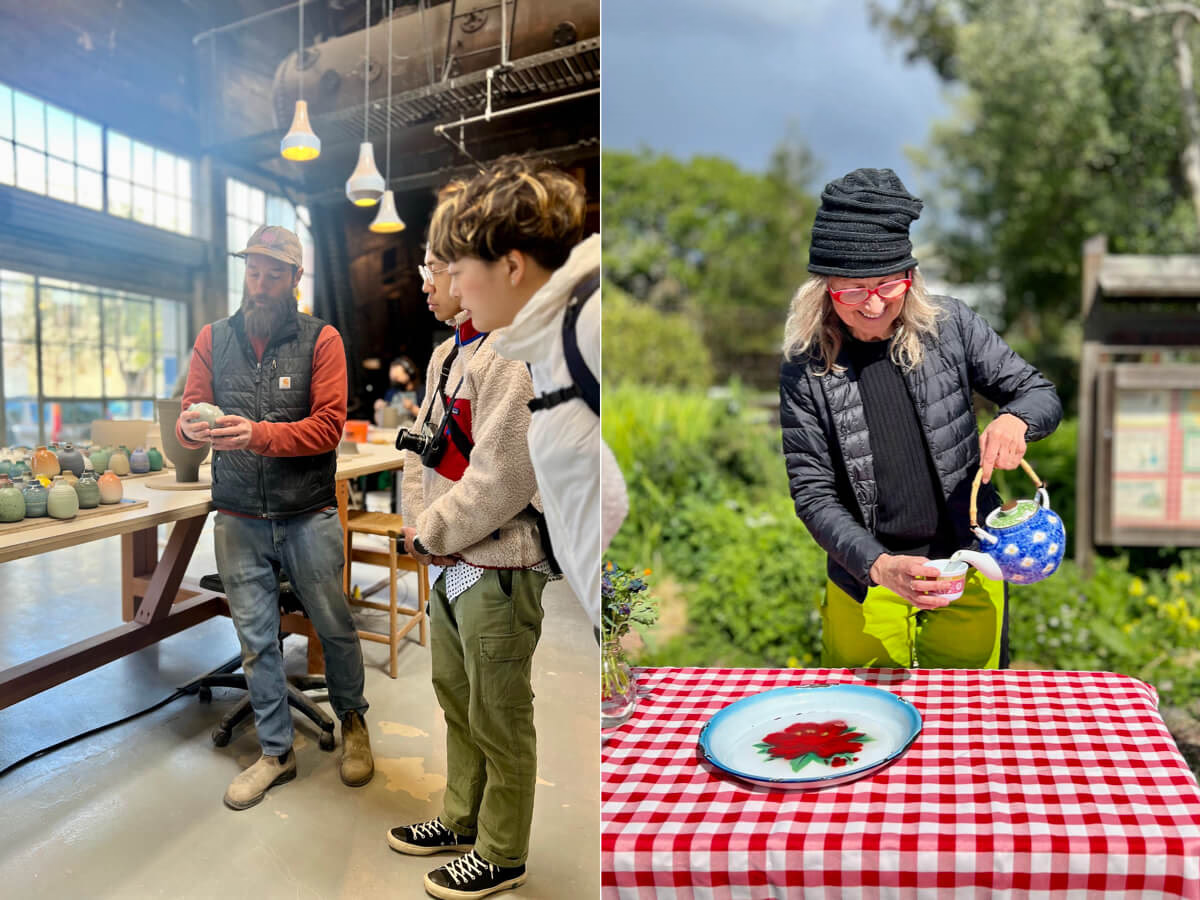
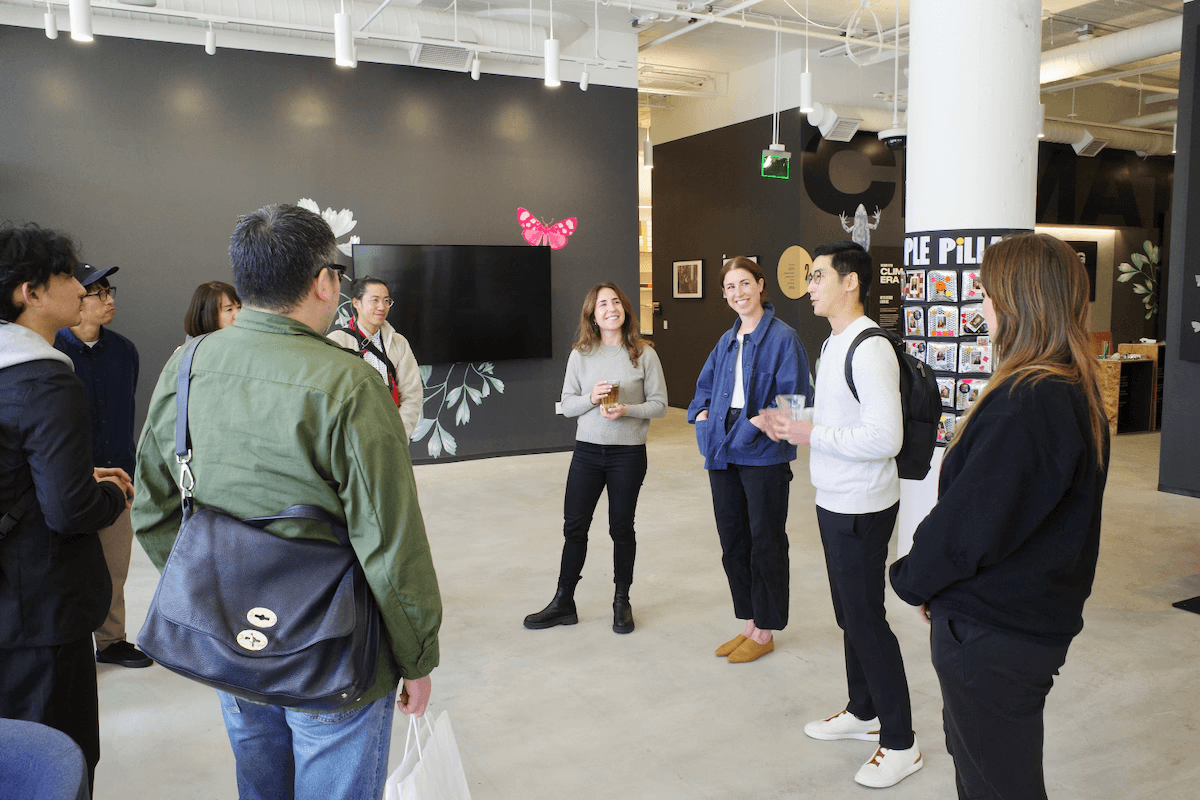
アメリカ視察のようす
杉本 入社されて以降、食の文脈が入ってきたり、今年は代表交代があったりと、どんどん変化していくモノサスをどう思っていますか?
藤原 ますます面白い会社になっているなと思っています。ずっと「モノサスって何の会社?」って聞かれるたびに言葉に窮していて。眞鍋さんが「たとえば、ものづくりの会社です、そこで私は〜をしています、とか言えるといいよね」って言っているのを聞いて、それはしっくりきています。
食の文脈が入ってくるのは面白いし良いことだけど、さらに何の会社か言いづらくなった。だけど、ひとつ言葉があるだけで違ってくる。あと、食の事業をやっていると家族が興味を持ってくれるんです。おいしいものを持って帰ることができるので、家族がさらに「モノサスっていい会社だね!」って言ってくれます(笑)。その食べ物は、ちゃんと想いがあってつくっているものだから。
杉本 家族に喜んでもらえる会社、いいですね! 最後に、まり絵さんにとって働くってどういうことですか?
藤原 働くということは......なんでしょうね。私はつくる人ではないけれど、仕事は自分の表現の場でもあって。働くということは、人の価値観を知り、人と関わりながら、自分ひとりではできないものごとをつくっていく、いろいろ表現していくことなのかなと思っています。
杉本 働くことをそんなふうに捉えているって素敵だなあ。ありがとうございました!
あえて「(笑)」みたいなのは多用しませんでしたが、インタビューの間まり絵さんはたくさん笑ってくれていました。すごくはっきりした印象のある方なのですが、すごく圧が少ない。そのあたりの存在感も、ディレクターという仕事に合っているのかもしれません。
学生時代からジャンベを叩いていたまり絵さんは、今も世界の民族音楽が好きなのだそう。アフリカ音楽、ブルガリアン・ヴォイス、バグパイプ、日本の阿波踊りから中国の少数民族の音楽まで幅広く聴いているそうです。個人的には、今度まり絵さんに会ったら民族音楽好きなあたりについて聴いてみたいなと思っています。
